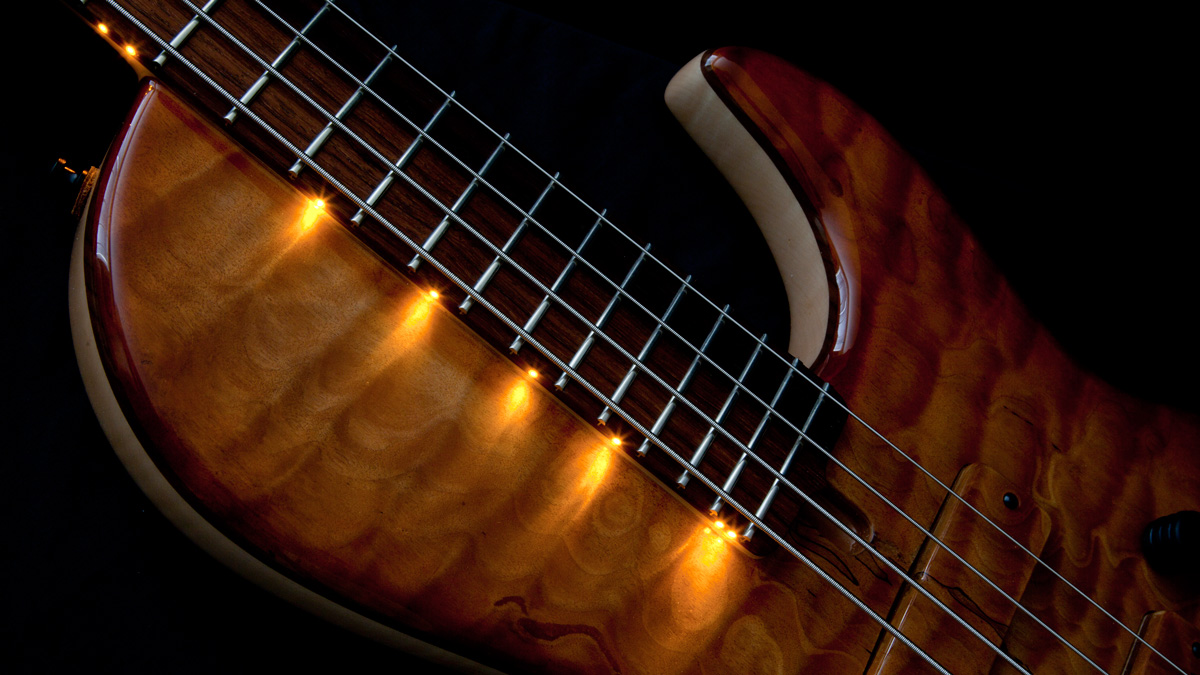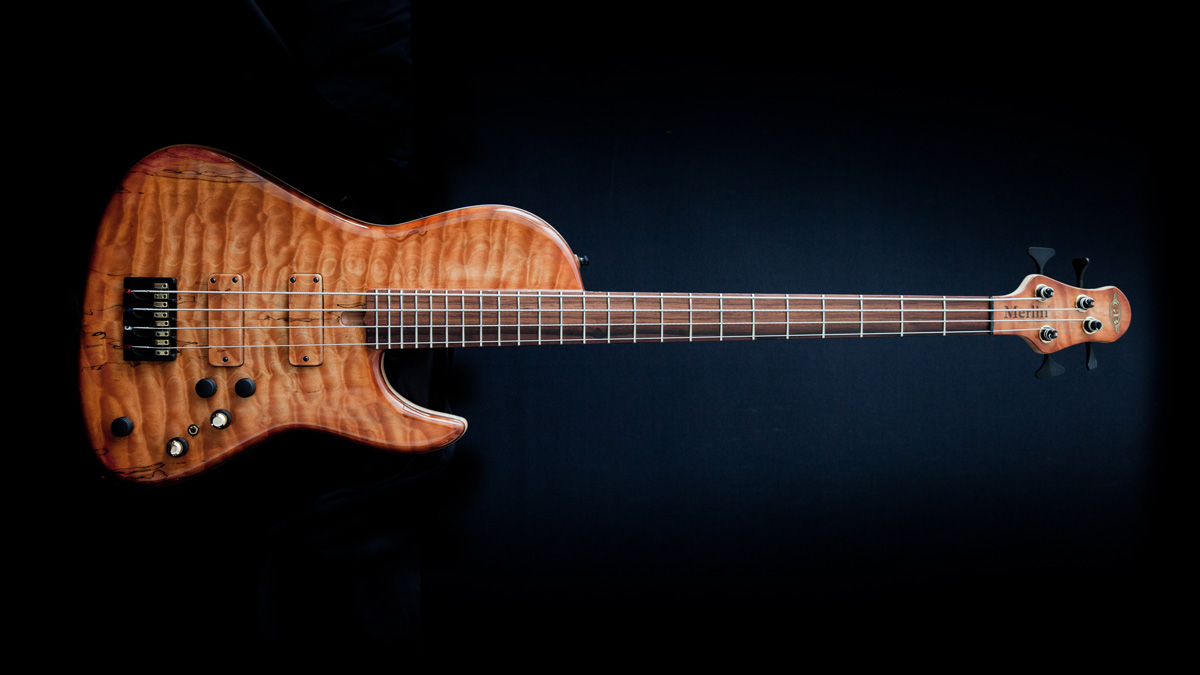MusicRadar Verdict
A bass to last a lifetime. Buy with confidence.
Pros
- +
Impeccable build quality and tone range.
Cons
- -
Expensive.
MusicRadar's got your back
It’s been a while since we looked at a head-turner from GB Guitars, but the inimitable Bernie Goodfellow has been good enough to provide us with a couple of current examples - and who are we to turn them away?
After enjoying considerable success with his Spitfire and Rumour models, Bernie has turned his attention to a singlecut model for players who prefer the look and feel of that type of instrument. The Merlin model takes the Spitfire body shape as a starting point and then elaborates on it to create the singlecut design you see before you. Note that Bernie is keen to stress that, as with all GB instruments, all features can be changed to suit the player.
Build
There’s no disputing the fine aesthetic on show here. With front and rear quilted maple facings, purpleheart, black American walnut, sycamore and flame maple timbers used for the body and neck, there’s no lack of natural beauty on show. The headstock with GB Guitars logo, pickup covers and control cavity plate also feature matched timber and with the gloss body coat, the timber figuring is shown off to the max. The neck finish, on the other hand, is described as a ‘super-tactile non-gloss sheen finish’, which certainly feels impressive.
The body is chambered to improve weight and balance, and both are very effective, with minimal headstock bias on show. There is no contouring to the front upper body bout, but the rear features a deep contour for player comfort. The lower cutaway offers unhindered access to the upper frets of the 24-fret rosewood fingerboard, while the amber side LEDs will guide your way despite no front-facing position markers. Hipshot hardware has been used throughout, a graphite nut has been installed and a Neutrik locking jack socket is featured on the lower side of the bass.

The neck profile is quite wonderful - non-intrusive, but with enough shape and curvature so that you can work with it rather than against it. With no sharp frets, a neck finish that helps your fretting hand move freely, 19mm/0.75” string spacing and an action with very little fret buzz despite being relatively low, this is an instrument demanding to be played.
Sounds
With a full GB electronics package onboard, the tonal possibilities are enough to make your mouth water. Before plugging in, the bass has a clear sounding organic tone - it’s quite woody, with a guttural thump in the low-mid region and a strong resonance. The natural sustain is noticeable.
Plugged in, the bass’s full tonal performance comes to life. With around 20dB of cut and boost across the three-band 18-volt EQ, one thing this bass doesn’t lack is punch and power. The fundamental tone is strong with a great deal of clarity, and running between the two pickups highlights a wide choice of tones from both of the GB soapbar. Simultaneously, sweeping across the mid-EQ gives the expected ‘wah’ effect, and the mid-EQ is pronounced, accentuating the woody character of the bass.
Want all the hottest music and gear news, reviews, deals, features and more, direct to your inbox? Sign up here.
The handy, push/pull-operated passive tone control is functional in both active and passive modes. There is also an additional treble boost for percussive techniques, accessed via the push/pull feature of the treble control. It will take some time to become familiar with how each EQ control interacts with the others, of course.
A GB Guitars instrument has long been a desirable commodity and the Merlin continues that tradition with aplomb. The pricetag is hefty but so are equally hand-crafted basses from the US and placed side by side, maybe the differences aren’t so great. The Merlin covers a lot of tonal ground, as it should at this price. The level of craftsmanship is such that the player can’t help but enjoy the playing experience. Playability and comfort have been addressed admirably. Bernie is to be congratulated on another fine specimen from his excellent stable.
